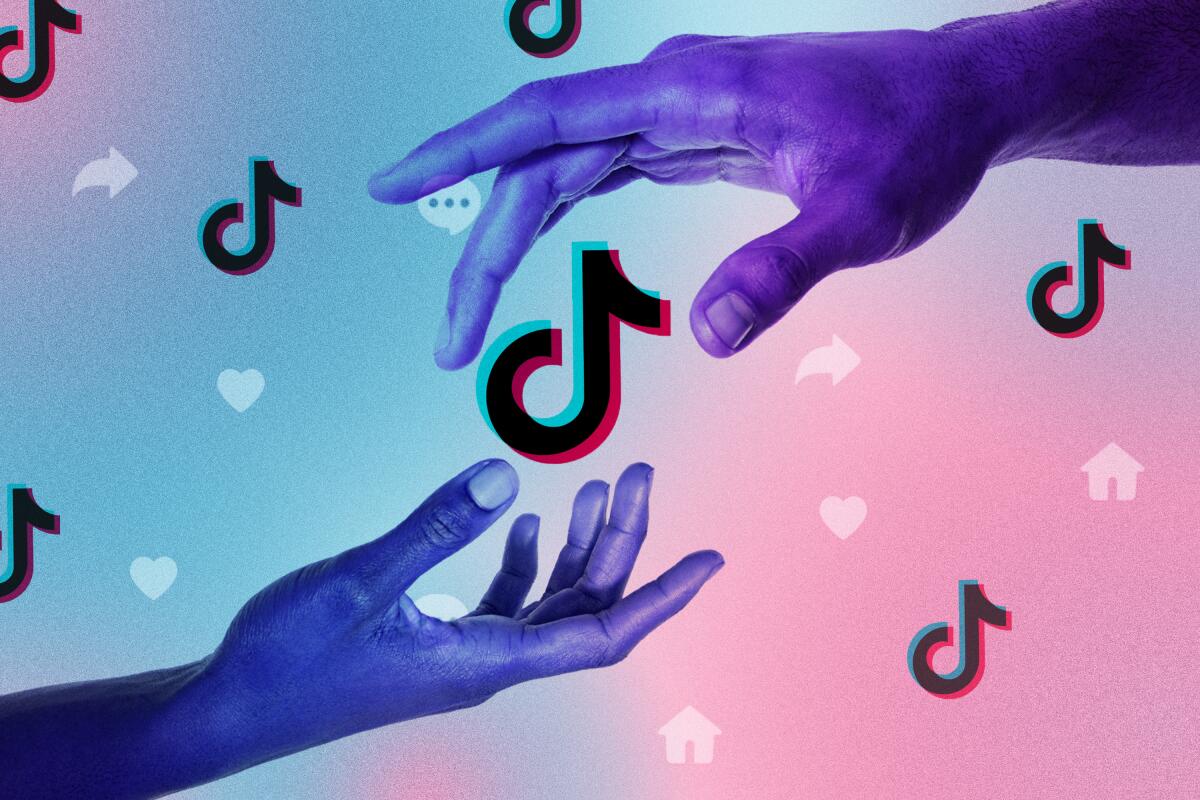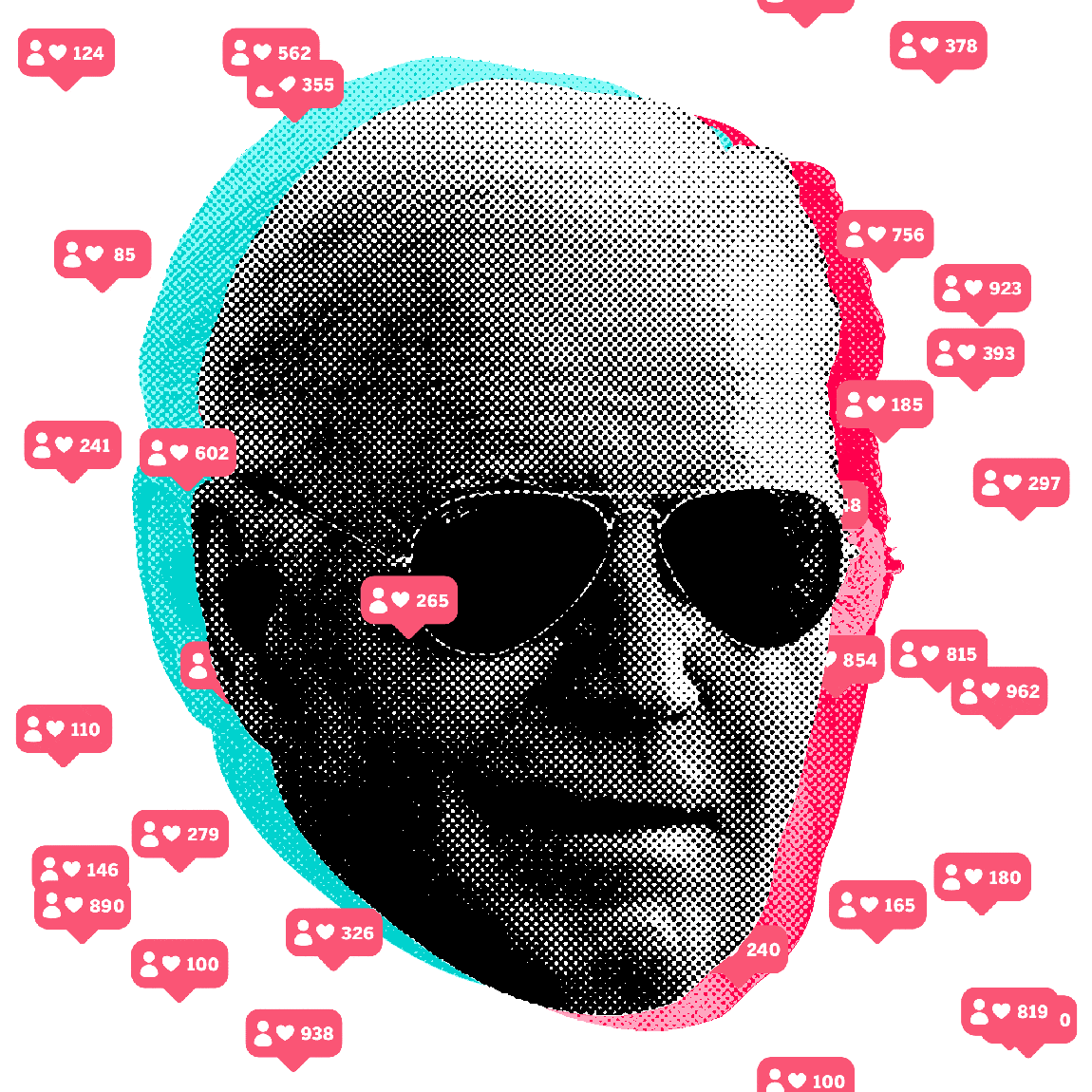Commentary: Sorry, TikTok. There’s no such thing as a social media giant America should love

It’s a strange premise to ask if America is a freer place with TikTok or without it, but social media these days is where personal satisfaction and the national interest most weirdly collide.
On Thursday, the U.S. House Energy and Commerce Committee put on a bipartisan showboating for Chief Executive Shou Zi Chew during his contentious testimony over the app’s corporate ties to China, among other issues. At stake is the company’s continued access to its estimated 150 million monthly American users, whose data U.S. officials are concerned could be obtained by Chinese Communist Party officials. (“ByteDance is not owned or controlled by the Chinese government,” Chew told Congress.)
Many of those American users were unimpressed with their leaders’ performance, which included puzzling questioning about whether TikTok connects to your home WiFi network. “If you’ve ever watched a congressional hearing before, they’re less about answers and more about grandstanding and making soundbites for the media in hopes that congressional members will get lots of post-game screen time,” said one TikTok user, @photogsteve81, in a post commenting on footage of the testimony in a post with the hashtags #keeptiktokalive and #savetiktok.
A little cynicism is in order. America’s vaunted social media companies, despite almost all the incumbent advantages they could muster, got out-competed by a Chinese upstart that put out a better product. (If the masses really wanted to spend our lives on Instagram Reels, we would have done it already.) In a battle of the free market and the free world, American social media users voted with their eyeballs. “What TikTok figured out in a way the other platforms haven’t is you can actually motivate the user with mostly positive content and experiences without having to try to trigger them into rage and division, like we see on apps like Twitter or Facebook,” @photogsteve81 said.
This is also the kind of thing that advertisers love to hear; Nike doesn’t especially want to sell shoe ads next to your manifesto about storming the U.S. Capitol. Many TikTok users are indifferent to whether a foreign government knows their feelings about Maine Coon cats.
But defenses of TikTok and other social media platforms also deserve scrutiny, on far more than mere national security grounds.
Like many Americans, I’m a regular TikTok user who can make 45 minutes of my life disappear at a moment’s notice by guzzling any video the app chooses to serve me about cats, birds, politics, history, books and (I guess I’m learning something about myself) video games and military life. I’ve bought new albums because of songs I’ve heard on TikTok; there are comedy bits I now treat as mental lore. It’s one of the rare slices of the internet where the comments section is often the most rewarding part of the overall experience. In these small ways, the app has transformed my life. The app’s effect is undoubtedly far greater for many other users who have found genuine community on the service. This is what would be lost if TikTok were to be banned.
Yet we have to be realistic about the fact that TikTok is perhaps the most temperamental form of media yet created — where users have some of the least control over what we encounter — and that we swim through this vast wasteland of ephemera, like on every other social media platform, for the ultimate purpose of being shown as many ads as possible. Do we fully understand the affects on our attention span, our psychological health, our body image, our children? If the answer is no (and the answer is no), it seems prudent to be patient with even clumsy attempts to interrogate the radical commercial experiment in which we’ve all been participating, which touches not just every corner of our personal lives but every layer of our society.
For instance: How many American TikTok users even view Congress as a legitimate institution to regulate their private social media usage? If you want to take the long view, any TikTok-using adult who has survived the last two decades of American life has lived in a world where our relationships with knowledge, culture and politics have been decreasingly mediated by the boring, out of touch, corrupt, gate-keeping mainstream institutions like newspapers, churches, unions, clubs and political parties that used to rationally order, organize and channel the public’s wandering spirits.
Although social anomie preceded social media, one of the great and probably unwitting original insights of Facebook when it first introduced the News Feed in 2006 was that the experience of being a free and free-thinking person in this country often felt like getting sandpaper dragged across your skin. After all — since we are reasonable people who can think for ourselves — why should we listen to the New York Times when its coverage got the 2003 Iraq invasion so wrong? Why should we keep going to Mass when the Catholic Church covered up priest abuse? Why should we trust politicians who seem bought and sold by the 1%? And why should we trust an institution that has shown even a whiff of contempt for our race, gender identity or political orientation?
It seems reasonable and even rational to complain under such circumstances, to build our evidence and make our cases against the people in charge, to reorganize ourselves into more neatly curated and less geographically dependent social formations. Despite extensive propaganda, platforms like Twitter didn’t end up giving us direct democracy. But we did get a lot of direct action. Through cunning of the democratic spirit, it’s now impossible to imagine going back to a world where the authority figures do all the talking. Social media feels like freedom, while it feels like our non-TikTok-loving elected representatives are just harshing our vibe over one of the few places where the vibes feel pretty good.
But we have to do better than feelings and definitions of freedom that consist of getting blindly pushed around by the environments that corporations built solely to profit from our impulses. A lot of online conversations actually don’t seem to encourage the kind of thoughtful or empathetic exchange many of us would probably prefer. We really should support having accountable, representative institutions that fight for our interests but that nonetheless dispassionately seek truth with some insulation from distraction, emotion and fad. Sorry if it sounds boring, but we need spaces that support patience, self-detachment, dialogue and the long view. Across the world, authoritarian governments and leaders have long been happy to harness the atomized passions of social media to bypass and undercut the newspapers, churches, unions and political parties that historically keep them in check. It’s possible for a platform to give the sensation of freedom while depriving us of its substance.
“Modern technology has created something of a monster, a communications system which bypasses the once-authoritative institutions that used to structure democratic discourse and provide citizens with a common base of factual knowledge over which they could deliberate,” political philosopher Francis Fukuyama wrote in 2021 in the Journal of Democracy. “The private companies that are responsible for this outcome are now among the largest in the world. They possess not only enormous wealth which they can use to protect their interests, but also something of a chokehold over the communications channels that facilitate democratic politics.” Fukuyama wasn’t even talking about TikTok. He was talking about American companies like Google, Meta and Twitter.
The strength of civil society is in its close-to-the-ground pluralism, in its fine solidarity between the public and the private, where big meets little and the individual meets the many. After Facebook and Twitter executives banned then-President Trump for undermining the peaceful transfer of power in the U.S. in 2021, their hyper-concentrated power and centralized decision-making structures raised the awkward question of who elected them to maintain the American public square and safeguard the preconditions of the republic. That sort of thing is supposed to be everybody’s job. To paraphrase Hegel, democracy isn’t supposed to have heroes because heroes appear only in its absence. Social media CEOs shouldn’t be heroes.
So unless you’re really happy about how long you can go without looking at your phone, and feel satisfied that all this connectivity is the same thing as connection, and feel like you’re in control, there’s no such thing as a social media giant America should love.
More to Read
The biggest entertainment stories
Get our big stories about Hollywood, film, television, music, arts, culture and more right in your inbox as soon as they publish.
You may occasionally receive promotional content from the Los Angeles Times.











